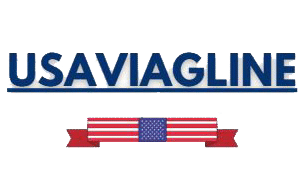Introduction
You’ve probably seen the word “Znxnz” online — in comments, usernames, or random posts — and thought, what does that even mean? It looks strange, doesn’t belong to any language, and yet people continue to talk about it. In 2025, this five-letter code has become one of the web’s oddest viral mysteries.
This article explains what Znxnz means, its origin, and why it’s currently trending. We’ll keep it clear, short, and simple so anyone — even a 10-year-old — can understand.
What Is Znxnz?
Znxnz isn’t a word you’ll find in the dictionary. It’s more like a tag or symbol that began appearing online around early 2024. People started using it in social media bios, memes, and even as brand names.
Some say it’s a random mix of letters. Others think it’s a code or something related to AI. But in reality, Znxnz has no fixed meaning. It’s a blank word that people fill with their own meaning — kind of like how “OK” or “LOL” started before becoming popular terms.
Znxnz means whatever people want it to mean. That’s why it spreads fast — everyone uses it differently.
Where Did Znxnz Come From?
No one can point to one single place. Early mentions of Znxnz were found in small blog posts, tech forums, and social media experiments. Around mid-2024, bloggers began to notice it appearing in hashtags, titles, and even AI-generated text tests.
Some believe it originated from the random output of an AI system, which curious users later picked up. Others think it’s part of an online art project or alternate reality game (ARG). But one thing’s clear: Znxnz grew because it’s short, strange, and searchable.
The internet loves puzzles, and Znxnz gave people one to solve.
Why Znxnz Is Trending in 2025
In 2025, trends move faster than ever. New slang or mysterious tags catch on within days. Znxnz got attention for one main reason — nobody knows what it means. That mystery drew people in, prompting them to click, share, and ask questions.
Social platforms like TikTok and X (formerly Twitter) have made the word viral. Some users developed theories, others created memes, and brands even started using it to capture attention.
That’s how Znxnz turned from a random string into a digital buzzword. It’s not about meaning — it’s about curiosity.
Znxnz and Internet Culture
Znxnz shows how internet culture works today. In the past, people relied on official sources for new words. Now, language is made by users. Anyone can create a trend.
Znxnz represents the chaotic, creative side of the web. It’s not about logic — it’s about how fast people can spread an idea. Even without context, the word feels mysterious, which keeps users guessing.
This shows that online culture no longer needs structure. One strange tag can become a global topic overnight.
How People Use Znxnz
You’ll find Znxnz used in many ways:
- Usernames: People choose them because they look cool and unique.
- Memes: They are often used as a joke, such as when someone posts “Znxnz happened again” with no explanation.
- Tags: Used to group posts about mystery topics or AI experiments.
- Brands: A few small creators and artists have used “Znxnz” as a product name or creative label.
It’s flexible, mysterious, and sounds futuristic — perfect for today’s meme-driven culture.
Znxnz vs Other Internet Mysteries
| Word / Trend | Origin | Meaning | Why It Went Viral |
|---|---|---|---|
| Znxnz | Unknown, likely AI or meme culture | Undefined | Its mystery attracts users |
| Yeat / Skibidi | TikTok / YouTube | Meme slang | Catchy and funny |
| Ligma | Internet joke | Fake word | Shock humor |
| Backrooms | Creepypasta | Endless yellow maze | Viral horror concept |
Unlike meme words that come with jokes or stories, Znxnz stands alone. No humour. No backstory. That’s what makes it strange — and interesting.
Is Znxnz an AI Mistake?
There’s a theory that Znxnz was first created by a language model — maybe as an accidental output. Some AI-generated texts exhibit similar random patterns, such as “gptzz” or “qxrxn”.
If true, that means Znxnz started as a machine error that turned into a human trend. Ironically, that fits the 2025 internet perfectly: people finding meaning in meaningless data.
Still, no one has confirmed that. But many researchers studying online trends believe the AI-origin theory makes sense.
Why Brands Are Interested in Znxnz
Small brands and digital creators are now using Znxnz as a brand keyword because it’s:
- Short and catchy — only five letters.
- Not used anywhere else — easy to trademark.
- Search-friendly — type it once and nothing else looks similar.
- Memorable — sounds like tech but still simple.
For example, some NFT artists use “Znxnz” as a signature or brand tag to distinguish their work. Others buy domains with “znxnz” to rank early before competition rises.
How You Can Rank for Znxnz on Google
If you’re a blogger or creator, this part is for you. Ranking for “Znxnz” is still easy because it has low competition.
Here’s what helps:
- Write a clear article (like this) explaining what Znxnz is.
- Use related keywords: “znxnz meaning,” “znxnz origin,” “znxnz trend 2025,” “what is znxnz.”
- Add your own take — don’t copy others.
- Ensure your site loads quickly and appears clean on mobile devices.
- Keep your title short and meta description natural.
Since only a few sites have written about it, even a small blog can reach the first page of Google if it’s well-optimised.
Why People Love Znxnz
People love mystery. When something makes no sense but feels important, they pay attention. Znxnz taps into that feeling. It’s like the internet’s new secret handshake — only those who know it think “in the loop.”
It’s also part of a bigger online behaviour: curiosity loops. That’s when people notice something unusual, investigate it, and continue discussing it. Znxnz keeps feeding that loop.
It’s not about what it means. It’s about being part of the trend.
Common Misunderstandings
Some think Znxnz is a hacker term or secret code. Others think it’s a new cryptocurrency. None of that is true. It’s just a random pattern that gained attention.
But that’s how misinformation spreads online — once people connect it to something mysterious, it multiplies fast. Always remember: Znxnz has no secret organisation behind it.
What Znxnz Says About the Future of Language
Znxnz shows how language evolves in the digital world. It’s proof that new words can exist without a defined meaning. They need attention.
The internet continues to generate random text, usernames, and memes — and sometimes, they stick. Znxnz might fade next year, or it might become part of pop culture. Either way, it shows that communication is becoming faster, simpler, and stranger.
FAQs
What does Znxnz mean?
Nothing specific. It’s an undefined term people use online for fun or mystery.
Where did Znxnz start?
No one knows for sure, possibly from AI text, forums, or early memes.
Is Znxnz an app or a brand?
Not officially, though some creators use it as a tag or name.
Can I use Znxnz for my project?
Yes, it’s unclaimed. Just make sure it’s not already trademarked in your region.
Why is Znxnz popular?
Because it’s strange and catchy — and people like solving puzzles online.
Conclusion
Znxnz began as a random five-letter mix. Now, it’s an internet symbol that illustrates how quickly a word can spread without conveying any meaning.
In 2025, people are drawn to mystery, speed, and simplicity — and Znxnz fits all three. Whether it started from AI, memes, or pure coincidence doesn’t matter anymore.
It’s now part of online history, showing that even nonsense can become a trend when enough people care.

